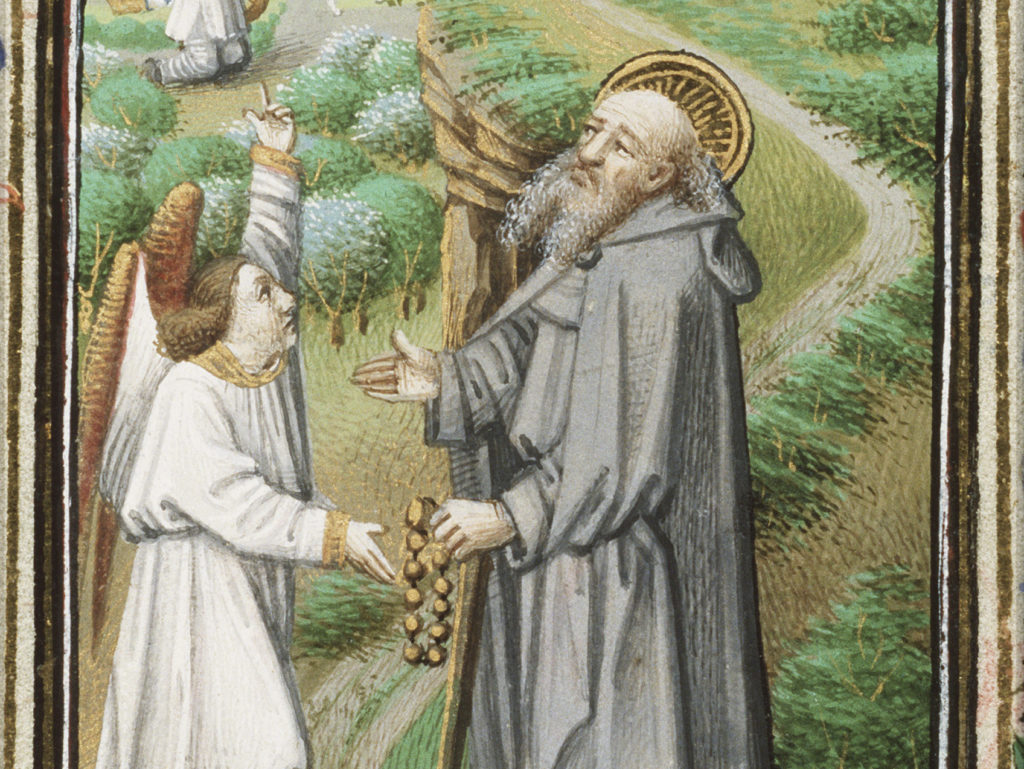St. Anthony of Egypt was not the first monk, but he’s often called the Father of Monasticism. He set an example that people saw and wanted to imitate. And I mean many people. It’s often said that he turned the desert into a city.
Anthony, whose feast we celebrate on Jan. 17, led a fascinating life. He lived in tombs and for a while in an abandoned fort. He did spiritual combat with squadrons of demons sent from hell to drag him down.
But I’m most fascinated with the quiet beginning of his story. It all started at Mass, during the reading of the Gospel.
St. Athanasius knew Anthony and wrote his first biography. He tells us that Anthony was a young man when he lost both parents and inherited his family’s substantial farmlands. Then, “not six months after the death of his parents, he went according to custom to the Lord’s house. ... He entered the church, and it happened the Gospel was being read, and he heard the Lord saying to the rich man, ‘If you would be perfect, go, sell what you possess and give to the poor, and you will have treasure in heaven’ (Matthew 19:21). Anthony, ... as if the passage had been read on his account, went out immediately from the church, and gave the possessions of his forefathers to the villagers.”
It happened just like that. He heard the Gospel at Mass, and it changed him. I should say that he listened to the Gospel at Mass. And then he went off to lead a solitary life.
It was an ordinary Mass in a rural village. I’m sure the priest or deacon who recited the Gospel was an ordinary clergyman and there was nothing special about his delivery.
But the proclamation re-echoed for centuries. Anthony went off, and hundreds followed him. Athanasius wrote a bestselling book about Anthony’s life, so that even after his death — and long after his death — thousands followed him. Within a century of its first publication, Athanasius’ “Life of Anthony” had influenced Augustine, Jerome, Rufinus, Evagrius, and many others.
Such is the power of sacred Scripture when it’s proclaimed in the Mass. The church is the normal place for the delivery of the word of God. And Mass is the ordinary time. It’s a graced moment.
In Anthony’s world, few people could read, and only the wealthiest could own books. They encountered the inspired word as they encountered the incarnate Word, when they attended the liturgy on Sunday.
The Church’s liturgy — its public, ritual worship — was and remains the natural and supernatural habitat of the Church’s Scriptures.
When that simple parish priest read aloud from St. Matthew’s Gospel, he changed the course of history. He enriched millions of lives. And he almost certainly never knew the effect during his earthly life.
I don’t think that was a unique event. I don’t even think it was unusual. In every Mass you and I attend, God is shaping the future through the Gospel proclamation of the covenant renewed in the Eucharist.
We need to listen.

